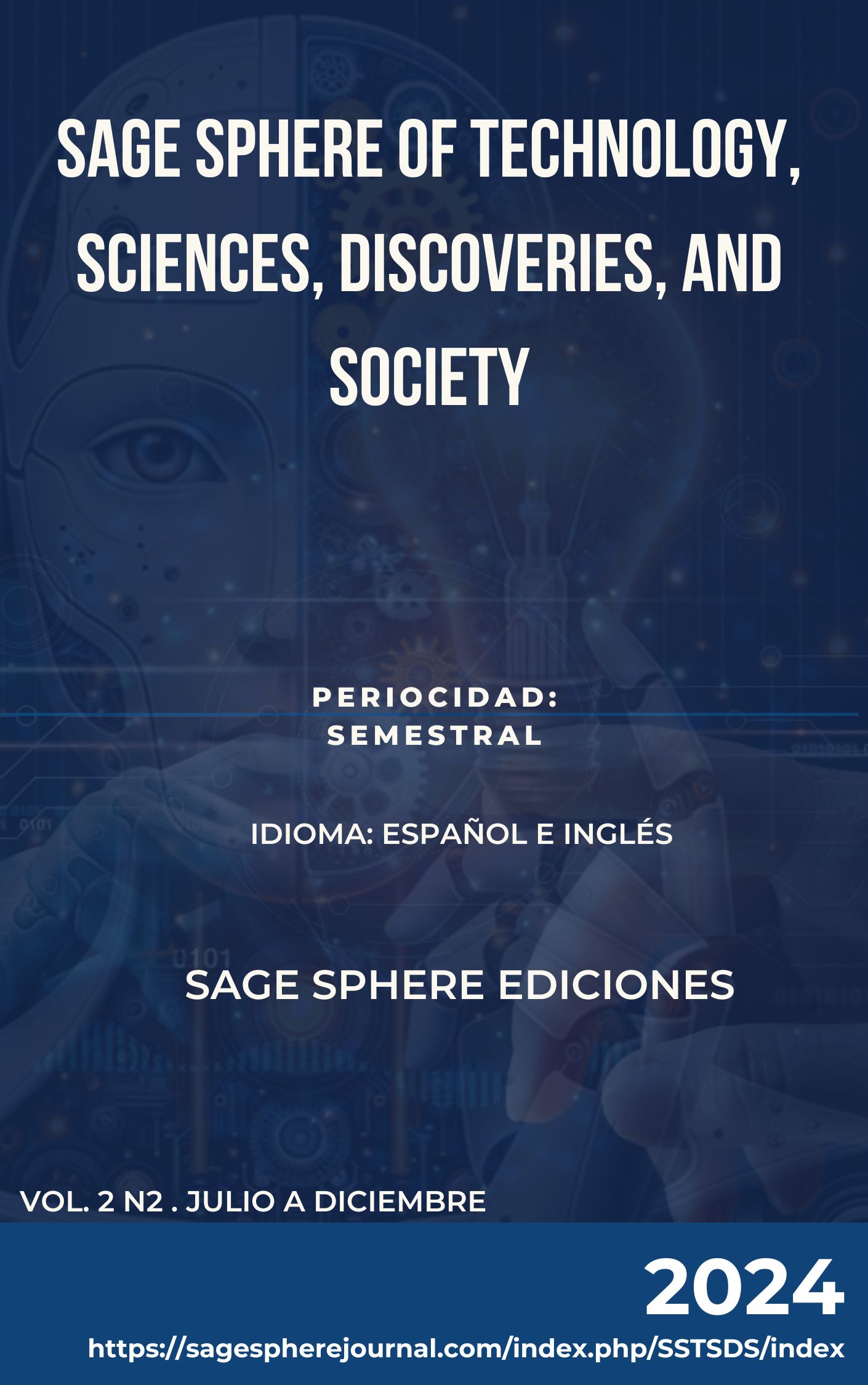stem approach in higher education: active strategies for solving real-world problems
DOI:
https://doi.org/10.63688/5wwznr40Keywords:
STEM methodology, Active learning; Higher, education, Problem-solving, Interdisciplinary skillsAbstract
The STEM methodology (Science, Technology, Engineering, and Mathematics) represents an innovative pedagogical approach that integrates various scientific and technological disciplines to equip students with the skills necessary to face global challenges. In the university context, STEM-based strategies promote active learning that develops key skills such as critical thinking, analysis, and interdisciplinary collaboration. By connecting theoretical knowledge with real-world problem-solving, this methodology prepares students for the labor market, especially in fields related to science and technology. Although the adoption of innovative educational methods in higher education is advancing, obstacles remain, such as inadequate infrastructure, insufficient teacher training, and resistance to change, which hinder the effective implementation of STEM. However, its integration fosters a more dynamic educational approach, improving academic performance and preparing students to face the challenges of the workforce. This article reviews the impact of STEM in higher education, highlighting how active methodologies, such as project-based learning and collaborative work, contribute to the development of essential skills and real-world problem-solving, preparing students to tackle complex professional challenges.
Keywords: STEM methodology; Active learning; Higher education; Problem-solving; Interdisciplinary skills.
References
Alvarado, P. L., Rosas, A. A., Rafael, S. A., & Gonzáles, L. R. (2022). Validación de instrumento sobre gestión de calidad en Centros de Investigación Universitarios de Venezuela. Revista De Ciencias Sociales, 28(1), 386-407. https://doi.org/10.31876/rcs.v28i1.37697
González, A. E., Almeida, G. M., & Maqueira, C. G. (2020). El software empresarial como tecnología para el aprendizaje y el conocimiento: un enfoque experiencial. SciElo Formación universitaria, 13(3). https://doi.org/10.4067/S0718-50062020000300101
Khalid, I. L., Syahrir, A. M., & Mohd, F. H. (2024). Una revisión sistemática: aprendizaje digital en la educación STEM. Journal of advanced research in applied sciences and engineering technology, 51(1). https://doi.org/10.37934/araset.51.1.98115
Laugier, S. (2024). La cultura como experiencia desde Dewey hasta Cavell. Revista de Educación Estética, 58(4), 99–116. https://doi.org/10.5406/15437809.58.4.09
López, A. Y., Sáez, D. F., & Mella, N. J. (2024). Propósitos de vida y académicos en estudiantes universitarios chilenos de carreras STEM (Ciencia, Tecnología, Ingeniería, y Matemáticas). SciElo Formación universitaria, 17(2). https://doi.org/10.4067/s0718-50062024000200083
Maldonado, T. S., Araujo, V., & Rondón, O. (2018). La enseñanza como un “acto de amor” mediante la aplicación de métodos de enseñanza-aprendizaje no tradicionales en entornos virtuales. Revista electronica Educare, 22(3). https://doi.org/10.15359/ree.22-3.18
Monteros, C. K., Soto, T. K., Cuenca, S. F., & Imaicela, T. B. (2024). Aprendizaje de los sistemas constructivos tradicionales en la carrera de arquitectura con la metodología STEM. European Public & Social Innovation Review, 9, 1–18. https://doi.org/10.31637/epsir-2024-697
Olayinka, T. A., & al., e. (2024). Desmitificando los puntos de vista de los educadores de Lesoto, Ruanda y Nigeria sobre las tecnologías inteligentes que respaldan la IA en la educación superior. Educ Inf Technol, 29, 24285–24307. https://doi.org/10.1007/s10639-024-12820-x
Philippe, H. L., & Alcoceba, H. J. (2025). Motivación del alumnado universitario: entre desmotivación y motivación intrínseca. European Public & Social Innovation Review, 10, 1–20. https://doi.org/10.31637/epsir-2025-306
Santilli, T., & al., e. (2024). Aprendizaje virtual vs. aprendizaje tradicional en la educación superior: una revisión sistemática de estudios comparativos. ElSevier Computadoras y educación, 227, 105214. https://doi.org/10.1016/j.compedu.2024.105214
Silvestre, A. A. (2025). Contribución de los facilitadores del aprendizaje profesional al aprendizaje sostenible de los docentes de STEM en contextos regionales. ElSevier, 8, 100406. https://doi.org/10.1016/j.ijedro.2024.100406
Solissa, J., Blegur, J., & Aryani, T. Z. (2024). Modelo de aprendizaje basado en problemas y resolución de problemas: ¿cuál es más eficaz para mejorar el rendimiento de aprendizaje de los estudiantes? (Problem-based learning and problem solving model: which is more effective in improving student learnin. Retos, 60, 816–822. https://doi.org/10.47197/retos.v60.108212
Squires, S. (2024). Del aprendizaje en el aula a la experiencia del cliente. Routledge. https://doi.org/ISBN 9781003340188; https://www.taylorfrancis.com/chapters/edit/10.4324/9781003340188-10/classroom-learning-client-experience-susan-squires
Vázquez, R. E., Aguilar, M. N., & Magaña, M. D. (2024). Habilidades sociales y autoeficacia: interés por elección de carreras en ciencias, tecnología, ingeniería y matemáticas. European Public & Social Innovation Review, 9, 1–17. https://doi.org/10.31637/epsir-2024-901
Wen, C. K., & al, e. (2025). Generación automática de ítems en diversas materias STEM utilizando un modelo de lenguaje amplio. ElSevier, 8, 100344. https://doi.org/10.1016/j.caeai.2024.100344
Zatarain, C. R. (2018). Reconocimiento afectivo y gamificación aplicados al aprendizaje de Lógica algorítmica y programación. Revista Electrónica de Investigación Educativa, 20(3). https://doi.org/10.24320/redie.2018.20.3.1636
Downloads
Published
Issue
Section
License
Copyright (c) 2024 Alejandro Jesùs Robles-Ramírez (Autor/a)

This work is licensed under a Creative Commons Attribution 4.0 International License.


